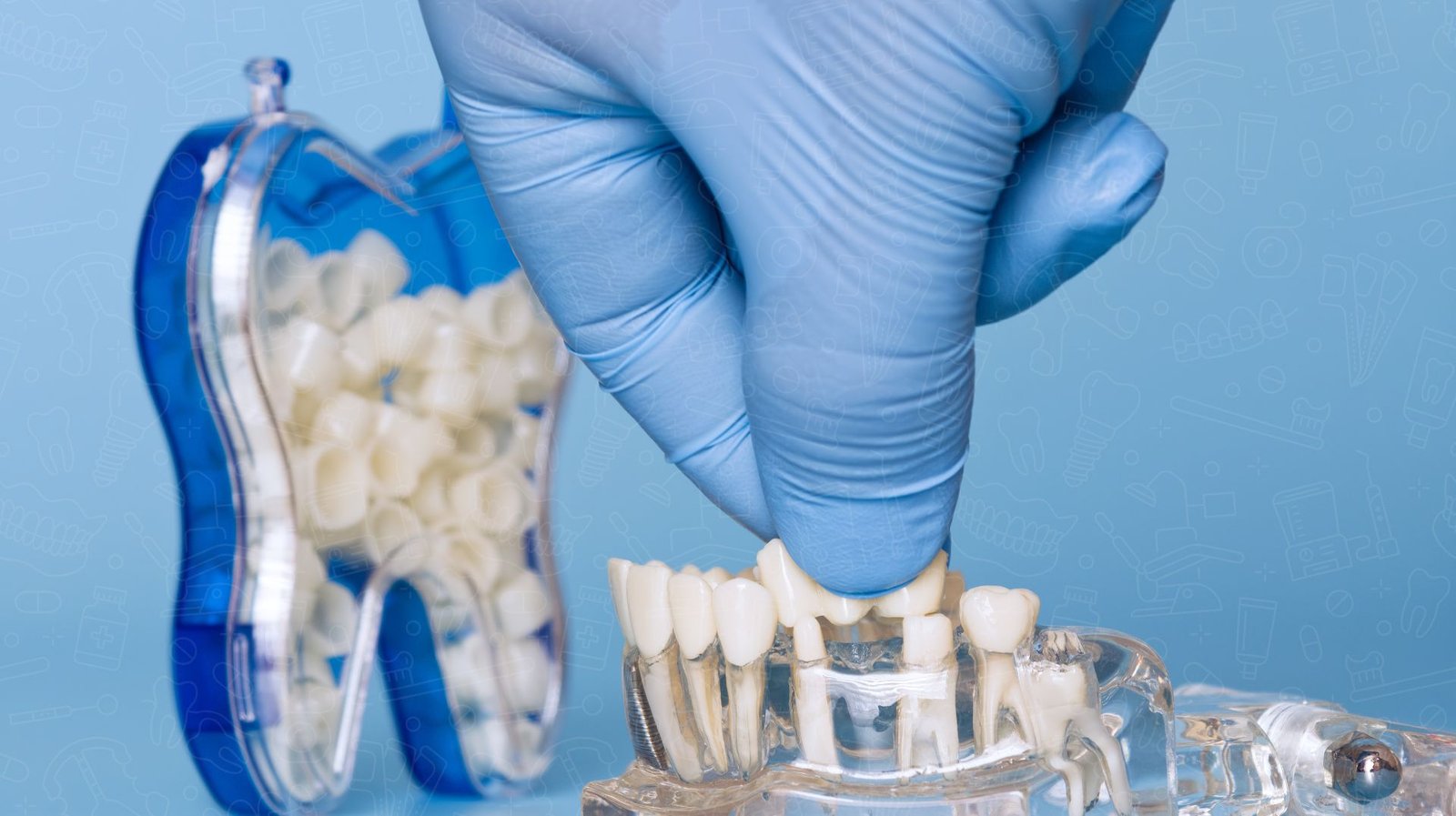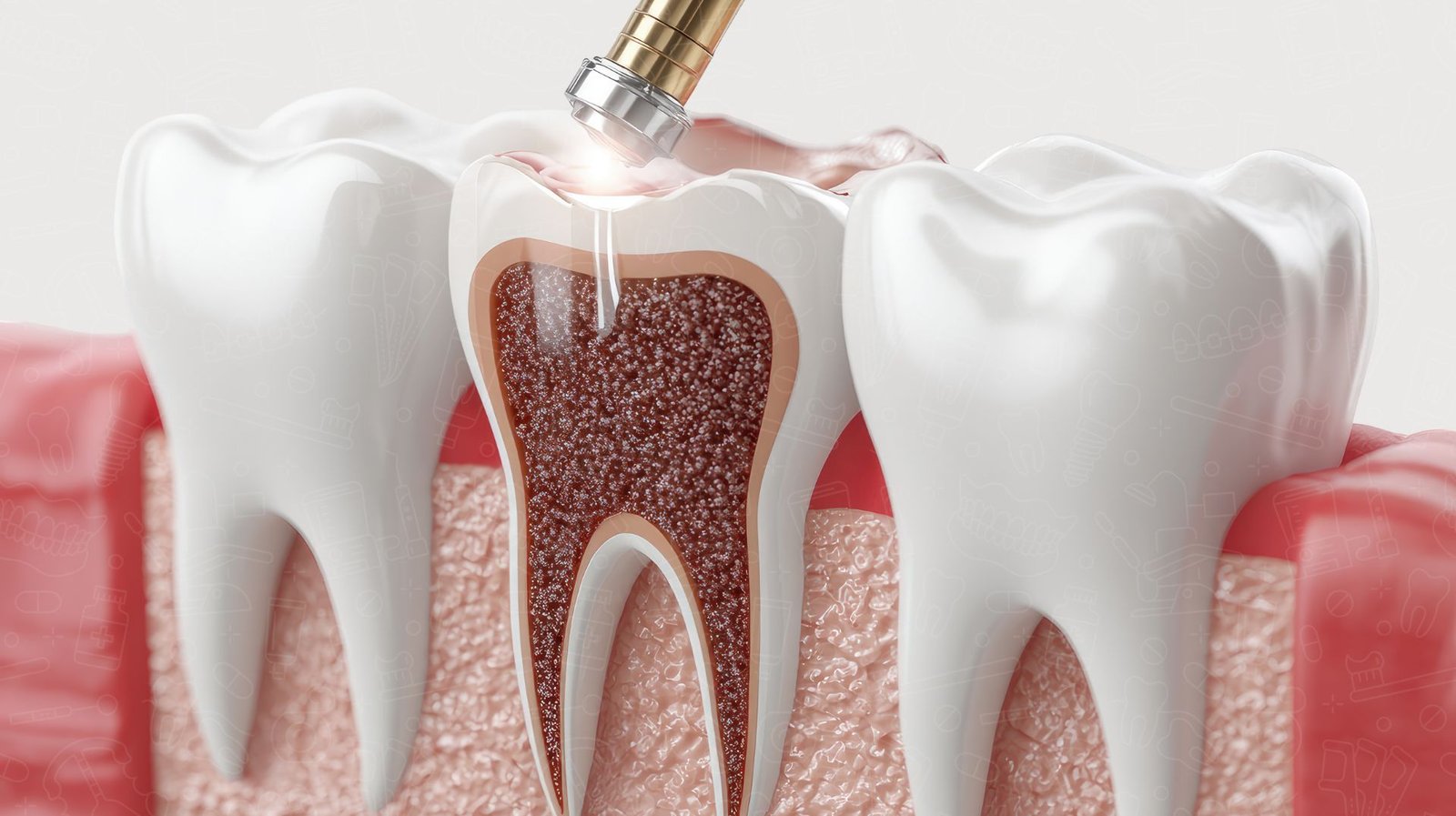Introduction
Tooth sensitivity is a common yet often underappreciated dental condition that affects many individuals throughout their lives. Characterized by discomfort or pain when consuming hot, cold, sweet, or acidic foods and beverages, this condition can significantly impact daily activities and overall quality of life. Understanding the various causes of tooth sensitivity, such as enamel erosion, gum recession, and exposure of the dentin, is essential for effective management and prevention.
Moreover, recognizing the symptoms that warrant professional intervention is crucial for individuals experiencing persistent sensitivity. Early identification can lead to timely treatments, preventing complications that may arise from untreated dental issues. The good news is that there are numerous at-home remedies and professional treatments designed to alleviate discomfort and protect tooth health.
Throughout this article, readers will learn about the signs that indicate the need for treatment, effective at-home strategies, professional options available, and how to choose the right dental products tailored for sensitive teeth. By equipping themselves with knowledge and practical tips, individuals can take proactive steps toward managing tooth sensitivity and enjoying their favorite foods without discomfort. The insights shared here aim to empower and educate, helping readers make informed decisions about their dental health moving forward.
Understanding Tooth Sensitivity and Its Causes
Tooth sensitivity, also known as dentin hypersensitivity, is a prevalent dental issue that affects a significant portion of the population. This discomfort often arises from various underlying causes, primarily including enamel erosion, gum recession, and exposure of the dentin beneath the enamel. Enamel erosion occurs when the protective outer layer of the teeth wears away, often due to acidic foods, beverages, or aggressive brushing techniques. As the enamel thins, the sensitive inner layer can become vulnerable to stimuli such as hot, cold, or sweet substances.
Another common cause is gum recession, where the gum tissue pulls back from the tooth, exposing the sensitive root surfaces. This exposure can lead to pain when the affected area comes into contact with temperature changes or pressure. Additionally, factors such as teeth grinding, certain dental procedures, and the use of whitening products can contribute to increased sensitivity. By understanding these causes, individuals may be better equipped to address their tooth sensitivity effectively. Regular dental check-ups can also help in identifying and mitigating these issues, ensuring that preventive strategies are implemented before discomfort escalates. Maintaining good oral hygiene and being mindful of dietary choices are essential steps in protecting dental health and minimizing tooth sensitivity.
How to Identify If You Need Treatment for Sensitive Teeth
Tooth sensitivity often presents with specific symptoms that indicate the need for treatment. Individuals experiencing discomfort when consuming hot, cold, sweet, or acidic foods and beverages may be suffering from this condition. Sensitivity can manifest as sharp, temporary pain, particularly when exposed to temperature changes, which can severely affect daily life and eating habits.
Another sign to watch for is the presence of discomfort in response to dental treatments, such as cleanings or whitening procedures. Individuals who notice persistent pain or sensitivity that lasts beyond a few seconds should consider seeking professional dental care, as this may indicate underlying issues such as enamel erosion or gum recession.
In some cases, individuals may also observe physical changes in their teeth or gums. For instance, receding gums can expose the softer dentin layer, amplifying sensitivity. Any noticeable staining, cracks, or chips on the teeth could also contribute to discomfort and warrant a dental evaluation.
Overall, recognizing these symptoms is essential for prompt identification of more serious dental issues. Those experiencing frequent or severe tooth sensitivity should consult a dentist to discuss the symptoms and explore potential treatment options. Early intervention can not only provide relief but also prevent further complications related to tooth decay or advanced gum disease.
At-Home Remedies and Prevention Tips for Sensitive Teeth
Individuals experiencing tooth sensitivity can often find relief through simple at-home remedies and lifestyle adjustments. One effective strategy is to use a soft-bristled toothbrush, which minimizes irritation to sensitive gums and enamel. Pairing this with fluoride toothpaste specifically formulated for sensitive teeth can bolster protection against discomfort.
Additionally, managing dietary choices plays a crucial role in sensitivity prevention. Reducing the intake of acidic foods, such as citrus fruits and carbonated beverages, can help protect enamel. Those with sensitive teeth should also consider rinsing with water after consuming such foods to neutralize acidity.
Another useful tip is to incorporate desensitizing mouthwashes into daily oral hygiene routines. These products can help shield nerves in the teeth and reduce pain. Furthermore, practicing mindful dental hygiene, such as avoiding aggressive brushing and using a gentle technique, can prevent enamel wear and gum recession.
Lifestyle changes can also contribute to long-term sensitivity relief. Reducing habits like teeth grinding, or bruxism, through the use of a nightguard is recommended. Stress management techniques, including yoga or meditation, can aid in minimizing tension that contributes to grinding.
By implementing these at-home remedies and preventive measures, individuals can effectively manage tooth sensitivity and protect their oral health, promoting a comfortable and confident smile.
Professional Treatment Options for Sensitive Teeth
Sensitive teeth can often be alleviated with professional dental treatments, particularly when at-home remedies do not provide sufficient relief. Various options exist to address the underlying causes of tooth sensitivity effectively. One common treatment is fluoride application, where a concentrated fluoride gel or varnish is applied to the affected teeth. This reinforces the enamel and decreases sensitivity by enhancing protection against temperature changes.
Dental bonding is another widely used procedure, particularly for cases where exposed dentin contributes to discomfort. A tooth-colored resin is applied to the affected area, creating a barrier that reduces sensitivity and improves aesthetic appearance. Additionally, gum grafting may be necessary for individuals experiencing gum recession. This procedure restores gum tissue, protecting tooth roots and reducing sensitivity associated with exposed areas.
In more severe situations, dentists may recommend endodontic treatments, such as root canal therapy, to address deeper issues resulting in extreme sensitivity and pain. It is essential to consult with a dental professional to determine the most appropriate course of action based on individual needs and conditions. Incorporating these professional treatments can significantly improve quality of life for those suffering from tooth sensitivity and enhance overall dental health.
Choosing the Right Toothpaste and Oral Products for Sensitivity
Selecting appropriate toothpaste and oral care products is crucial for individuals experiencing tooth sensitivity. Toothpaste specifically formulated for sensitive teeth typically contains desensitizing agents, such as potassium nitrate or strontium chloride, that can help soothe nerve endings and reduce discomfort. These specialized formulas work by blocking the pathways that lead to signals of pain, providing relief during daily brushing.
In addition to desensitizing toothpaste, individuals should consider using a soft-bristled toothbrush. A soft bristle option is less abrasive and minimizes the risk of further wear on sensitive enamel and receding gums. Mouth rinses containing fluoride can also contribute to strengthening enamel and protecting against sensitivity while offering a fresh feeling.
When shopping for oral care products, look for the American Dental Association (ADA) Seal of Acceptance, which indicates that the product has been evaluated for safety and effectiveness. In particular, fluoride toothpaste with a concentration suitable for adults and children can play a vital role in oral health maintenance.
Other factors to consider include sugar-free chewing gum that promotes saliva production, which can aid in neutralizing acids and protecting teeth. Ultimately, individuals with sensitive teeth should consult their dentist for personalized recommendations that cater specifically to their oral health needs, ensuring the best approach for managing sensitivity effectively.
When to See a Dentist for Persistent Tooth Sensitivity
Persistent tooth sensitivity can indicate underlying dental issues that require professional attention. Individuals experiencing continuous discomfort when consuming hot, cold, sweet, or acidic foods should seek dental evaluation promptly. Common warning signs include sharp pain that lingers long after exposure to stimuli, sensitivity lasting for more than a few days, or increased discomfort over time.
Additionally, if sensitivity is accompanied by noticeable changes, such as swelling in the gums or visible enamel loss, this may signal a more serious problem, such as decay or gum disease. Ignoring these signs can lead to more extensive damage, which might necessitate more invasive treatments.
Early intervention by a dental professional can help diagnose the root cause of tooth sensitivity, enabling effective treatment before the situation worsens. Routine dental check-ups should also not be overlooked, as a dentist can often identify issues before they manifest as discomfort.
In many cases, addressing the cause of sensitivity, such as treating cavities, managing gum recession, or reinforcing enamel with fluoride treatments, can significantly alleviate symptoms. By promptly seeking care, individuals can improve their oral health and restore their comfort when eating and drinking. Awareness of the signs that warrant a dental visit plays a crucial role in maintaining overall oral well-being.
Conclusion
In conclusion, tooth sensitivity is a prevalent concern that can disrupt daily life, making it essential for individuals to be informed about its causes, symptoms, and management options. This article has provided valuable insights into understanding tooth sensitivity, from identifying the underlying factors such as enamel erosion and gum recession to recognizing when to seek professional help.
Moreover, readers have learned about effective at-home remedies, preventive measures, and professional treatment options tailored specifically for sensitive teeth. By implementing strategies such as using desensitizing toothpaste, incorporating healthy dietary choices, and maintaining proper oral hygiene, individuals can significantly reduce discomfort and enhance their oral health.
Furthermore, consulting a dental professional when facing persistent sensitivity ensures that any serious underlying conditions are addressed promptly. Armed with this knowledge, individuals can take proactive steps toward achieving a comfortable, pain-free smile and make informed decisions about their dental care regimen. Understanding tooth sensitivity empowers readers not only to manage their symptoms effectively but also to improve their overall quality of life. As a result, individuals can confidently enjoy their favorite foods and beverages without the fear of discomfort, highlighting the importance of effective dental care and informed awareness.





